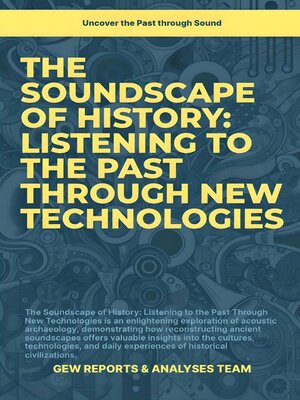The Soundscape of History
ebook ∣ Listening To The Past Through New Technologies
By GEW REPORTS & ANALYSES TEAM

Sign up to save your library
With an OverDrive account, you can save your favorite libraries for at-a-glance information about availability. Find out more about OverDrive accounts.
Find this title in Libby, the library reading app by OverDrive.



Search for a digital library with this title
Title found at these libraries:
| Library Name | Distance |
|---|---|
| Loading... |
The book explores the role of sound in ancient cultures, discussing its impact on daily life, rituals, warfare, and festivals, and emphasizing the use of modern technologies to reconstruct and analyze historical soundscapes. The driving idea behind "The Soundscape Of History: Listening To The Past Through New Technologies" is to explore the significance of sound in ancient cultures and civilizations and to illustrate how modern technologies can be used to reconstruct, analyze, and understand historical soundscapes. The book emphasizes the importance of sound in shaping daily life, rituals, warfare, and festivals in ancient societies and highlights the interdisciplinary approaches and technological advancements that enhance our ability to study and experience the auditory dimensions of the past. By integrating acoustic archaeology with digital tools, the book aims to uncover the cultural, social, and emotional impact of sound on human history and to preserve this intangible heritage for future generations.






